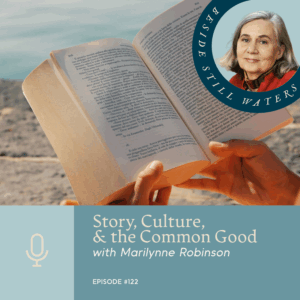On this holiday honoring his birth, it is worth reminding ourselves why Martin Luther King Jr. deserves the place he holds in the American imagination.
Dr. King was — with Jefferson, Madison, and Lincoln — our nation’s most effective advocate for the American ideal. How he became so is itself a fascinating story.
King graduated from Morehouse College in 1948 with a degree in sociology. He was unhappy with his major, however, complaining about the “apathetic fallacy of statistics.” While at Morehouse, King decided to change his field of study. He entered Crozer Theological Seminary, where he absorbed the writings of political philosophers “from Plato and Aristotle,” King wrote, “down to Rousseau, Hobbes, Bentham, Mill and Locke.”
In a beautiful tribute to King, delivered at Spellman College in 1986, then secretary of education William Bennett explained why King turned to the liberal arts. In Bennett’s words:
Martin Luther King turned to the greatest philosophers because he needed to know the answers to certain questions. What is justice? What should be loved? What deserves to be defended? What can I know? What should I do? What may I hope for? What is man? These questions are not simply intellectual diversions, but have engaged thoughtful human beings in all places and in all ages. As a result of the ways in which these questions have been answered, civilizations have emerged, nations have developed, wars have been fought, and people have lived contentedly or miserably. And as a result of the way in which Martin Luther King eventually answered these questions, Jim Crow was destroyed and American history was transformed.
In combating segregation, King could easily have gone in a different direction than he did (nonviolent civil disobedience). There were, after all, many competing philosophies within the black community about which way to go: Booker T. Washington’s gradualism, Marcus Garvey’s “Back to Africa” movement, Malcolm X’s appeal to black nationalism, A. Philip Randolph’s direct-action campaigns, the NAACP’s legal strategy, and W.E.B. Du Bois’s “Talented Tenth” approach among them.
Dr. King’s liberal-arts education helps explain why he chose the path he did. And so, too, did his Christian faith.
While Malcolm X declared that nonviolence was the “philosophy of the fool,” in a sermon in 1956, King argued the opposite:
Always be sure that you struggle with Christian methods and Christian weapons. Never succumb to the temptation of becoming bitter. As you press on for justice, be sure to move with dignity and discipline, using only the weapon of love. Let no man pull you so low as to hate him. Always avoid violence. If you succumb to the temptation of using violence in your struggle, unborn generations will be the recipients of a long and desolate night of bitterness, and your chief legacy to the future will be an endless reign of meaningless chaos.
King went on to say this:
In your struggle for justice, let your oppressor know that you are not attempting to defeat or humiliate him, or even to pay him back for injustices that he has heaped upon you. Let him know that you are merely seeking justice for him as well as yourself. Let him know that the festering sore of segregation debilitates the white man as well as the Negro. With this attitude you will be able to keep your struggle on high Christian standards.
King concluded his sermon this way:
I still believe that standing up for the truth of God is the greatest thing in the world. This is the end of life. The end of life is not to be happy. The end of life is not to achieve pleasure and avoid pain. The end of life is to do the will of God, come what may.
I still believe that love is the most durable power in the world. Over the centuries men have sought to discover the highest good. This has been the chief quest of ethical philosophy. This has been one of the big questions of Greek philosophy. The Epicureans and the Stoics sought to answer it; Plato and Aristotle sought to answer it. What is the summum bonum of life? I think I have discovered the highest good. It is love. This principle stands at the center of the cosmos. As John says, “God is love.” He who loves is a participant in the being of God. He who hates does not know God.
One of the things we learn from Martin Luther King Jr.’s life, then, is that he saw great injustice and sought to confront it within the American tradition and his Christian faith rather than outside them. In that sense, King was very much like Lincoln, who consistently urged Americans to return to the truths of the Declaration of Independence and “take courage to renew the battle which [the founding] fathers began, so that truth, and justice, and mercy, and all the humane and Christian virtues might not be extinguished from the land.”
We celebrate Dr. King’s birth because he was among the greatest men America ever produced, his words among the most powerful and evocative ever written. They changed the trajectory of American history for the better, and only a handful of others can make the same claim.
Peter Wehner is a senior fellow at the Ethics and Public Policy Center.

